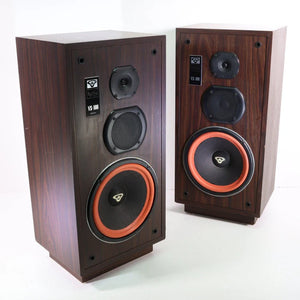We are unable to reply to comments, so please message us directly if you have a specific question regarding products, shipping costs, etc. Our office number is (480) 207-1511. Our email is hello@spencertified.com. You can also message us on Facebook. Commonly asked questions and answers can be found on our FAQs page here.

CAMCORDER VS VIDEO CAMERA: IS THERE REALLY A DIFFERENCE?
SIMILARITIES AND DIFFERENCES BETWEEN CAMCORDERS AND VIDEO CAMERAS
Camcorders versus video cameras…There isn’t much of a difference, right? One of those interchangeable terms, just like turntable and record player.
Well, that’s the thorn in the foot. In day-to-day life, if you confuse the meaning between turntable and record player, most people won’t take notice. But if you switch these two terms in a circle of audiophiles or vinyl enthusiasts, you’ll get at least a side-eye or two.
Camcorders and video cameras are in a similar vein. Reminiscing with your family about the hulking camcorder your father had in the 80s when it was actually a video camera? No biggie. They are pretty similar, after all. But there is a difference between the two in terms of design, features, and function. So let’s break it down and see what the differences between them actually are!
WHAT IS A CAMCORDER?


“Camcorder” is short for “camera recorder.” As the abbreviation suggests, it does both parts of the filming process: shoot video and record. It’s a handheld device that combines a video camera, recorder, and player all into one. There are both larger, professional camcorders and smaller, consumer-level camcorders.
They work similarly to still image cameras in that the lens captures visual information, the image sensor converts it to an electronic signal, and the microphone captures auditory information. These signals are stored on either built-in storage or external storage media.
WHAT IS A VIDEO CAMERA?

“Video camera” is a broad term that refers to equipment that can capture motion and convert images into electrical signals. They’re specifically made for capturing video footage. They don’t always have internal recording capability, so they usually store media in the form of external media like VHS tapes and memory cards. They also tend to require an external playback device.
It can also be a generic term that covers all recording devices from professional equipment to consumer devices.
WHAT’S THE DIFFERENCE?

- Lenses: Camcorder lenses typically have a more powerful zoom and greater magnification, at least right out of the box.
- Sound: Camcorders are designed to record sound along with video, so their internal microphones tend to be better than video cameras. Professional-grade video cameras, for example, are designed specifically to record video so external microphones can capture high-quality audio.
- Storage: Video cameras normally don’t have internal hard drives, so they need to record video to something external like memory cards, video cassettes, or DVDs. Camcorders can record to memory drives, but they also have integrated recording capabilities.
- Shooting: Video cameras have larger sensors and lenses, which allows them to capture more light in dimmer environments. They are also better at changing focus to different objects, moving from the background to the foreground, so the resulting video has a more “cinematic” look.
- Function: Both devices are equipped for capturing video and now are much more portable and convenient than the over-the-shoulder hunks they used to be. However, camcorders are especially compact and comfortable as they’re all-in-one handheld devices specifically designed for shooting videos over a long period of time; they boast features like image stabilization and rotatable LCD screens for multiple viewing angles. Video cameras concentrate solely on capturing video, so they don’t necessarily have to be compact or easy to carry.
SUMMARY
Both camcorders and video cameras are cemented in video technology history. From VHS to S-VHS to Betamax to Hi8, these devices were technological marvels that brought video recording into the home, creating lasting memories for thousands of families. They let everyone, not just professionals, record videos.
Which is best? Well, both have their uses, of course. If you were a photographer who wanted to take occasional videos, or a pro who wanted a device dedicated solely to video capturing, you’d probably go looking for a video camera. If you were someone who wanted to create longer videos and needed constant image stabilization in one handheld device, you’d probably go looking for a camcorder.
Thanks for reading! Perhaps now next time someone refers to a device as “camcorder,” you can correct them on why it’s actually a video camera. Then again, to-may-toe, to-mah-toe, right?



Leave a comment